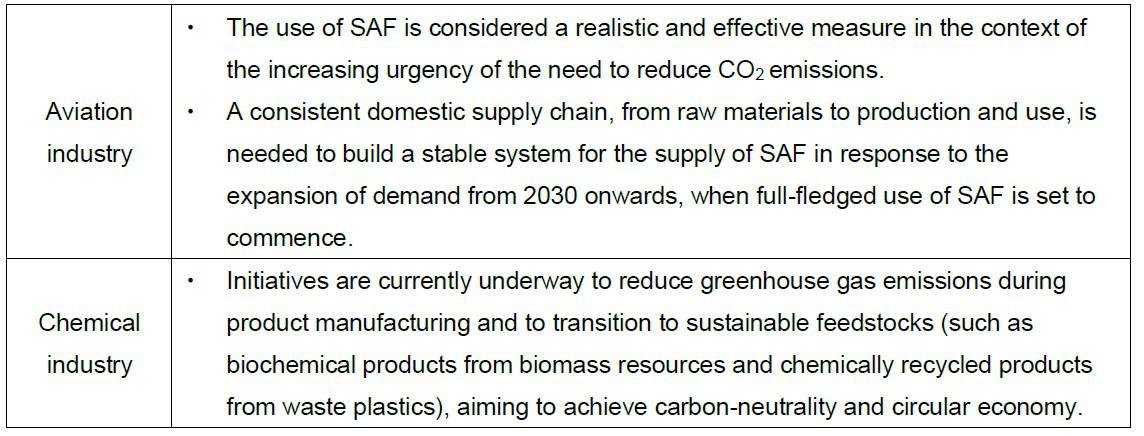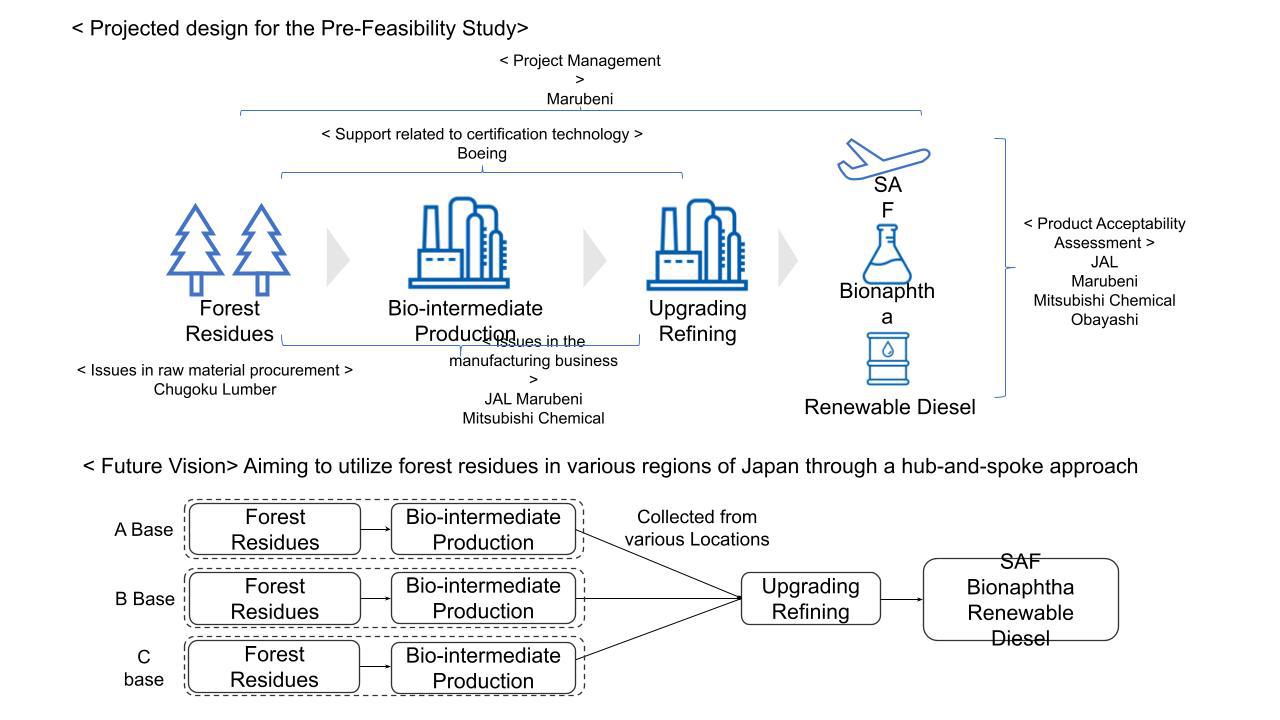Press Release
Commencement of a Pre- Feasibility Study for the Commercialization of Sustainable Aviation, Bio-naphtha, and Renewable Diesel Utilizing Domestic Forest Residues

Japan Airlines Co., Ltd.
Marubeni Corporation
Mitsubishi Chemical Corporation
Chugoku Lumber Co., Ltd.
Boeing Japan KK
Obayashi Corporation
Japan Airlines Co., Ltd. (hereinafter, “JAL”), Marubeni Corporation (hereinafter, “Marubeni”), Mitsubishi Chemical Corporation (hereinafter, “Mitsubishi Chemical”), Chugoku Lumber Co., Ltd. (hereinafter, “Chugoku Lumber”), Boeing Japan KK (hereinafter, “Boeing”), and Obayashi Corporation (hereinafter, “Obayashi”), have concluded a memorandum of understanding on a preliminary business feasibility study for the manufacture and sale of sustainable aviation fuel (hereinafter, “SAF”), bio-naphtha, and renewable diesel from domestic forest residues (hereinafter, the “Pre-Feasibility Study”).
Background and Significance
Japan is among the leading countries in terms of forest resources worldwide, with high expectations that thinning materials and residues generated from wood usage can be leveraged as sustainable raw materials due to their potential volume. In addition, the use of wood in large-scale wooden buildings, including high-rise buildings, is currently in the spotlight from the perspective of resource circulation, and it is expected that there will be an increase in opportunities to utilize the residues generated as a result of such initiatives.
<Current status and initiatives of the aviation and chemical industries>

Overview of the Pre-Feasibility Study
This study envisions the potential use of manufacturing technology developed by Licella*1 to produce a bio-intermediate (renewable oil) from wood residues, which will then be reformed and refined for use in making products such as SAF, bio-naphtha, and renewable diesel towards the building of a domestic supply chain. This supply will leverage a model involving local consumption of locally produced products. Specifically, the study will assess the economic viability of the business; consider the raw material supply and processing system as well as the manufacturing process; and evaluate product logistics and effectiveness in reducing CO2 emissions. The study is scheduled to run until December 2025 and aims to commercialize the product around 2030 depending on the progress of the study.
*1 Licella is an Australian-based global technology pioneer delivering the next generation of low carbon solutions. Its patented Cat-HTR™ platform is the world’s leading hydrothermal liquefaction (HTL) technology, using water to sustainably transform abundant waste feedstocks into an advanced bio-intermediate, upgraded to advanced biofuels, biomaterials and circular plastic through advanced recycling.
Roles of each company in the Pre-Feasibility Study

Future prospects
The companies participating in this study will pool their knowledge and expertise towards the realization of the domestic production of sustainable products; the creation of new industries utilizing forest resources throughout Japan; and the promotion of regional revitalization. In addition, by promoting the circulation of forest resources, they will aim to contribute to the resolution of Japan’s forestry challenges, including carbon fixation*2, water resource conservation*3, and disaster prevention.
*2The process of capturing carbon dioxide from the atmosphere in plants, soil, etc. and storing over long periods of time.
*3Namely, the function of forests in storing rainwater which then acts as a supply of groundwater.


